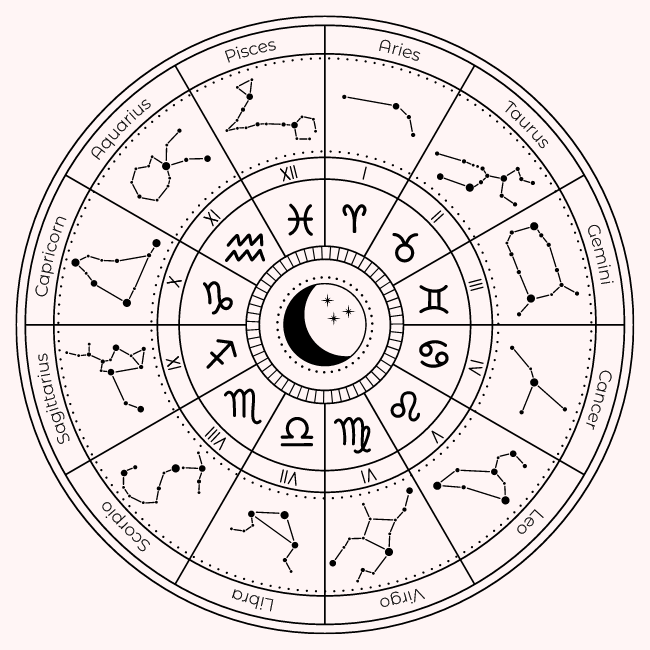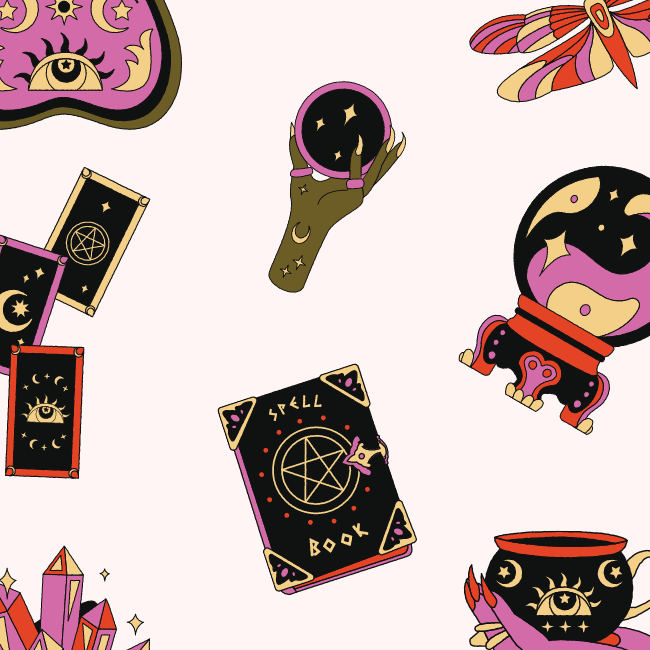Astra Inclinant, Sed Non-Obligant: Pop Culture and Modern Astrology

You have probably heard of people asking you when your birthday is or, more straightforwardly, what your zodiac sign is before they even strike up a conversation with you. Some people use it as a conversation starter, and it’s possible that the other person shares their enthusiasm for the topic. Or, they may be “cringing” inwardly and criticizing them for their question.
Either way, it is indisputable that in this generation, these kinds of conversation starters are common. This is because astrology as a concept is boomingly popular.
Apparently, for a bunch of people nowadays, it just makes sense — how your personality has something to do with the day that you were born. Clearly, astrology is now ingrained in the current popular culture, and it’s a topic worth delving in.
Defining astrology
Astrology, according to Beck (2018), ascribes meaning to the placement of the sun, the moon, and the planets within 12 sections of the sky—the signs of the zodiac. Britannica defines this as “a type of divination that involves the forecasting of earthly and human events through the observation and interpretation of the fixed stars, the Sun, the Moon, and the planets.” You may be familiar with the horoscope part of a newspaper, which dictates vague details about what could take place in your life, week, or day, based on your zodiac sign. Those things are astrology.

Astrology in the modern era
Because of how pervasive astrology is on social media nowadays, we can concur on its popularity. In the past, astrology merely thrived primarily in newspapers and brief spots on entertainment or news television programs. Now, however, astrology is reinterpreted into many views and fervently absorbed by millennials and Gen Zs in the form of memes, articles, podcasts, threads, videos, and even groups.
People rant about zodiac sign stereotypes. They talk about possible happenings brought upon by retrogrades. They warn others about particular signs when it comes to romance and dating, and the like.
Memes like “the zodiac signs as characters from the Avengers” are born, too, and somehow, they are completely comprehensible.
It even comes to a point that some people would refuse to talk to you just because they had “bad blood” with your sign. Inarguably, pop culture has astrology deeply inscribed on its core.
Pop culture and astrology
As Smallwood et al. (2019) have said, astrology is currently enjoying a broad cultural acceptance that has not been seen since the nineteen-seventies. Analogically speaking, Smallwood elucidated that astrology can be the equivalent of psychoanalysis at the mid-century.
Back then, people would talk about the id, ego, or superego at parties. Its modern era equivalent? Conversations about your sun sign, moon sign, and ascendant.

Astrology offers comfort? Cool.
How astrology boomed is no longer a wonder, though, especially with the fact that it innately offers comfort to people in distress.
In Beck (2018)’s article, she introduced psychologist Graham Tyson’s 1982 study about how stressed people have tendencies to consult to astrologers, even though under low-stress conditions he does not believe in it.
When it comes to stress talk, the millennials and Gen Xers are significantly ahead in numbers. Statistically, since 2014, millennials have been the most stressed generation, according to American Psychological Association survey data.
Resorting to zodiac signs for a feeling of comfort is quite a reasonable act, much more so when things do not seem to make sense anymore. Much like religion, astrology offers you a more personal connection with the stars and the universe just to make your mind feel more at ease. That is human nature, and is completely understandable.
How does astrology make sense, anyway?
Personally, astrology entices me in a way that I want to figure out how it makes sense.

Rationally speaking, it is absurd how constellation and planetary bodies’ alignments have something to do with my mind state and behavior, but it just does—and for that reason, I want to learn more about it. I see it as a pseudoscience, a form of art, a taste of solace in a tumultuous world.
Nevertheless, that is all there is to it. I do not want to lose my ability to think for myself and to take things logically. As much as it is fascinating to learn about, I do not want to spin my world around it.
“Astra inclinant, sed non obligant.”
I have a firm belief: “astra inclinant, sed non obligant,” a Latin phrase that translates to “the stars incline us, they do not bind us.” It means that while the stars guide us, we are still responsible for honing our own paths for ourselves. Honestly, I see it as an archaic diss to those who profusely believe in astrology and lose their rational grounding in the process.

This reminds me of our age before Enlightenment.
Admittedly, the current obsessive take on a huge population from my generation ticks me off.
It reminds me of humanity’s era before the Enlightenment, an age where they anchored all of their ideas on religion just because they refused to think for themselves. I feel like history is repeating itself before my very eyes.
This is concerning because, in the advent of overwhelmingly excellent information available, we should be more sensible in our responses to the things around us. Astrology kills this sensibility. People from my generation seem to just accept when things happen because, apparently, it is already “written in the stars.”
For instance, a person could do someone wrong, and he could just say that “that makes sense because they are a Scorpio” instead of facing their toxic tendencies head-on and initiating a confrontation with them.
At the end of the day, though, regardless of how astrology made its way into pop culture, it still is an interesting pseudoscience, an enticing field of study. I just hope that its existence as a concept would not completely take us over and steal our initiative to think for ourselves.
How about you, are you a fan of astrology? What do you think about it?
Moira is a clumsy extroverted writer who scribbles about everything that piques her interest. That includes her own emotions, love, life, love life, music, books, you name it. Albeit reliant on her random bursts of creativity to get going at times, she is ingeniously curious and dependable, and talks to her seven cats as a stress reliever. She has found home in writing ever since she was a child and sees it as the sole legacy that her parents she barely knows has left for her.











